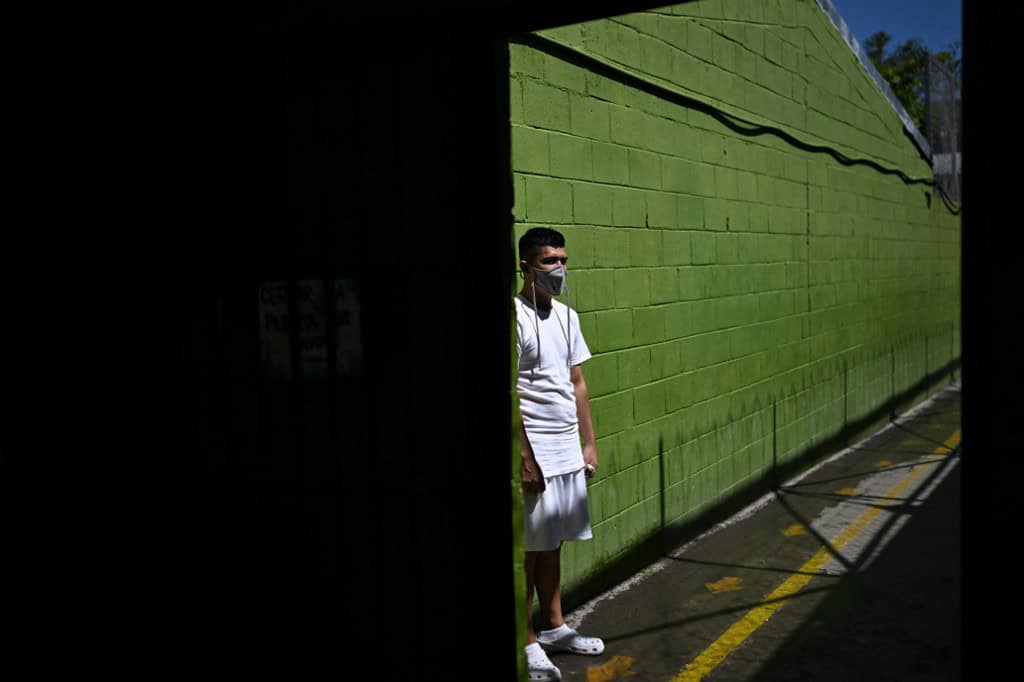First, Yessica Mercedes lost a brother who was beaten to death by gang members. Then, another brother was jailed in the government’s “war” against gangsters. Neither were members of the feared criminal groups that have wrought havoc on Salvadoran society, she said.
Her family, however, has been caught in the middle of both gang violence and President Nayib Bukele’s controversial crackdown to halt the bloodshed.”Now we are no longer victims of criminals, now we are victims of the regime, which takes away innocent people,” the 43-year-old seamstress said.
Her brother Leonel Mercedes is one of 82,000 Salvadorans detained under a state of emergency imposed in 2022 that allows arrests to be made without a court order. Bukele’s crackdown on gangs has led to a drastic drop in homicides and is praised by many Salvadorans, but rights groups slam abuses in prisons, saying inmates are forced to confess and held without contact from families and lawyers.
The Salvadoran NGO Socorro Juridico Humanitario (SJH) estimates that almost a third of those detained are innocent — based on a study of 3,500 cases. “I am not defending, or against, the government. What I want is for them to hand over my brother, who is innocent,” Yessica said at her home in San Jose Las Flores, north of the capital San Salvador.
Inmates dying in prison
Five years ago, her brother Carlos Alfonso, 44, was beaten to death by gang members in his neighborhood, and now she is afraid that Leonel, who suffers from epilepsy, will die in jail. He has already been hospitalized for the condition while imprisoned. “I don’t want to take him out of a prison in a box,” Yessica said. Yessica said that Leonel was only arrested because he had a police record after being detained for a few days in 2015, along with scores of others following a brawl at a party.
It has been seven months since he was jailed. She has heard he will be tried as an alleged member of a gang along with a woman and another man she said he did not even know. SJH director Ingrid Escobar said that 311 prisoners have died since the implementation of the state of emergency, which “is worrying because they were under the guardianship of the state.”
Amnesty International and Human Rights Watch have also denounced “indiscriminate arrests,” prison overcrowding, torture, and the arrest of children. Bukele and government officials deny these accusations.
Fidel Antonio Zavala, 30, a businessman who was imprisoned for 13 months on charges of aggravated fraud, said he witnessed the torture and beating of inmates in La Esperanza and Santa Ana prisons, where he was held. He said he saw one notorious guard nicknamed “Montana” pin an inmate to the ground, “kicking him in the chest against the gate of the prison.”
The director of La Esperanza, Juan Jose Montano, denied torture in his facility. “If there is any agent who does that, who hits an inmate, he is punished,” he said.
Lawsuit over abuses
The SJH has submitted 2,700 habeas corpus requests to the Supreme Court to check on people who have been detained, but 95 percent of them have not received a response. The NGO is now planning to file its first lawsuit over abuses under the state of emergency to the Washington-based Inter-American Commission on Human Rights.
The case pertains to the murder in prison of union representative Jose Leonidas Bonilla in September 2022.The 42-year-old municipal official had no criminal record and was arrested at home after an anonymous complaint. Five months later he died after a beating in prison.
Escobar said civil society organizations had exhausted efforts with the national justice system. “What we find is silence, which means denial of justice,” she said.
“What we are seeking is a conviction against the State of El Salvador for crimes against humanity and the torture of” Bonilla under the state of emergency, she added.






